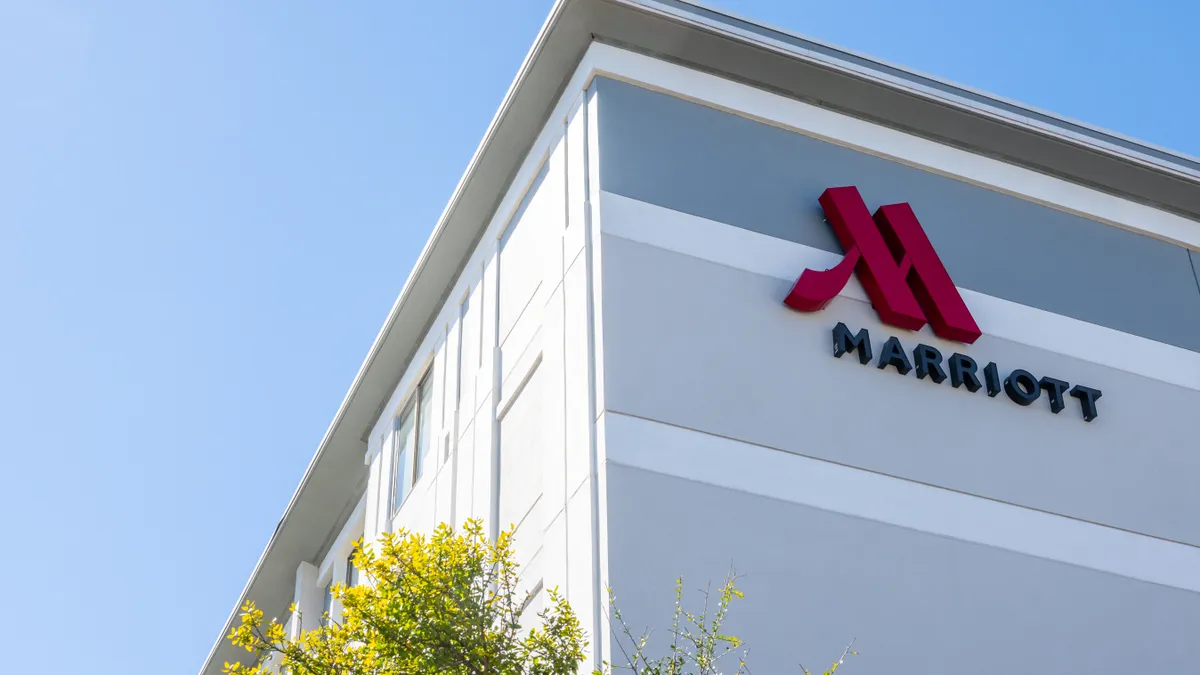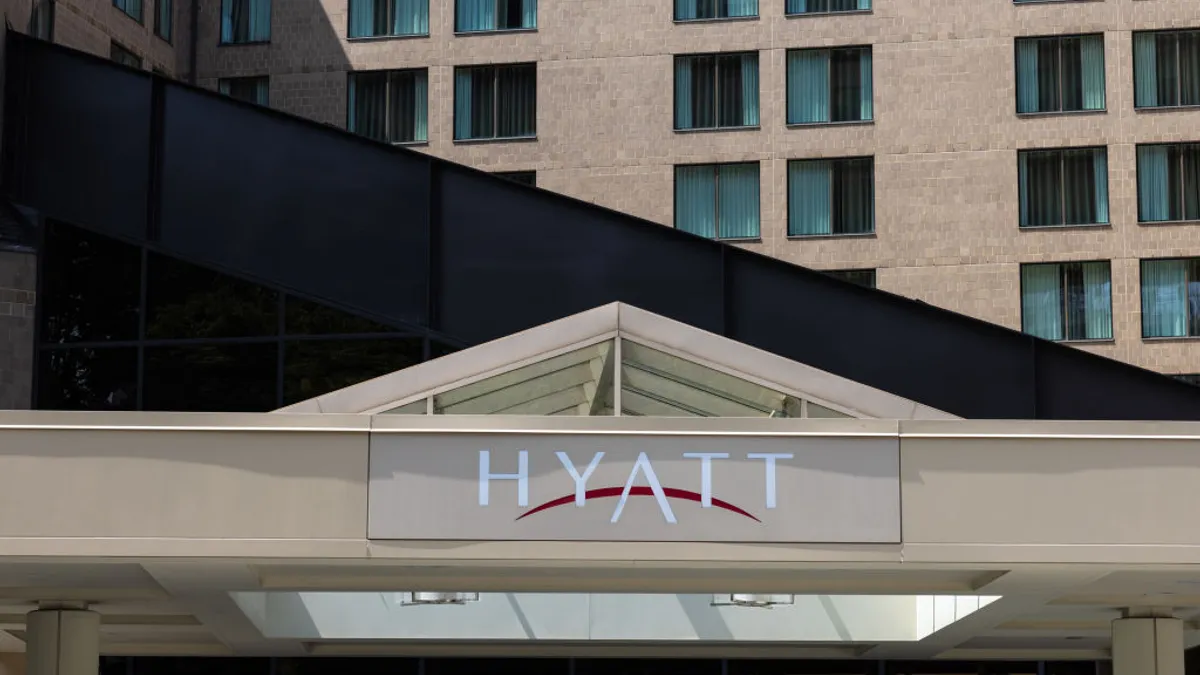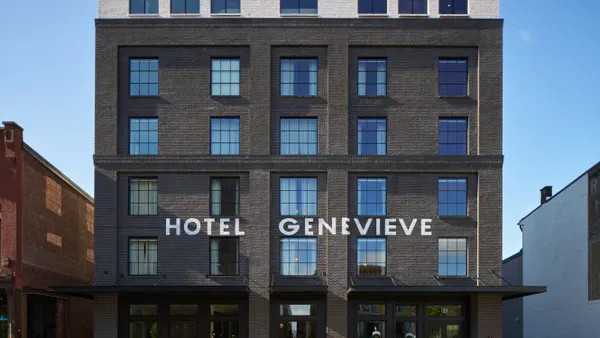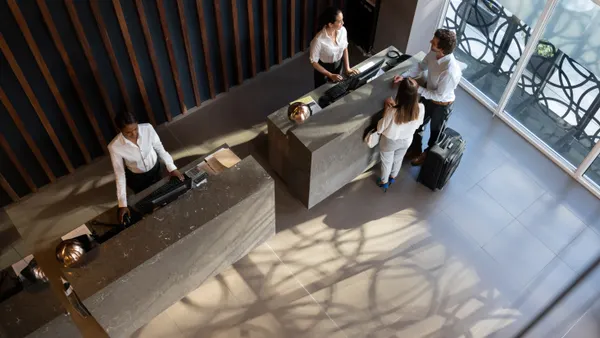Dive Brief:
- Marriott plans to add between 230,000 and 270,000 net rooms between year-end 2022 through 2025, expanding its global portfolio to nearly 1.8 million rooms, the company shared Wednesday in a meeting with investors and analysts, outlining its growth strategy through 2025.
- Marriott — leading other major hotels like Hilton, InterContinental Hotels Group and Hyatt in market share of signed new construction rooms in the pipeline — said it’s particularly focused on rooms growth in the midscale and luxury spaces. Hotel conversion, a popular alternative to new construction for many owners and developers, is another “critical piece of the company’s overall growth strategy,” Marriott said in a statement.
- The company’s projected growth is driven by continued robust demand for international travel and demand for hotels particularly, Marriott CFO and EVP of Development Leeny Oberg said during the meeting.
Dive Insight:
Marriott’s growth strategy for the next three years includes adding a significant number of rooms to its global portfolio, including for its StudioRes extended stay brand, which launched earlier this year as the company’s first midscale brand in the U.S. and Canada.
Marriott plans to add rooms across its other international midscale brands as well, including the City Express brand, which it acquired earlier this year in the Caribbean and Latin America region, and Four Points Express by Sheraton, launched Wednesday for its Europe, Middle East and Africa region.
The hotel company also plans to add rooms in the luxury segment, which will likely see increased traveler spending in coming years, Marriott noted, as global wealth is expected to increase 38% by 2027.
Marriott currently has a 16.9% global market share of luxury hotels, leading over Hyatt (11.4%), Accor (10%) and IHG (8.8%), according to the company. Its luxury portfolio is set to grow through 2025, with 225 hotels in the pipeline. One of those hotels is the Ritz-Carlton Portland — the brand’s first hotel in the Pacific Northwest — set to open later this year, a Marriott spokesperson announced during the meeting.
Marriott pointed to the prioritization of experiences over goods as a driver of demand in the luxury space. The company also noted an increase in travel for events and the rise in “trips that blend business and leisure.”
In the U.S. and abroad, both leisure and business travel demand remain robust, Oberg and Marriott President and CEO Anthony Capuano both expressed during the meeting.
Business transit recovery has been slow but steady, the Marriott spokesperson said, with small- and medium-sized business outperforming well above 2019 levels. Leisure transient revenue, they added, continues to show strength but has stabilized recently as more travelers from the U.S. and Canada choose to visit overseas destinations.
Marriott’s growth outlook, while subject to change, was “built against the backdrop of the realities of the debt markets today,” Capuano said, so all projected growth is taking into account current uncertain market conditions.
Marriott’s competitors are also expanding in the luxury space. Earlier this month, Hyatt expanded its luxury lifestyle hotel pipeline by 30 properties, noting the segment’s growth is bolstered by a “current demand for authentic leisure travel experiences.”










